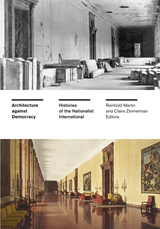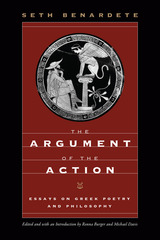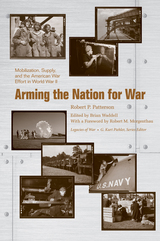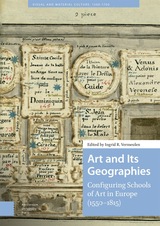19 start with A start with A
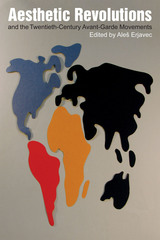
Contributors. John E. Bowlt, Sascha Bru, David Craven, Aleš Erjavec, Tyrus Miller, Raymond Spiteri, Miško Šuvakovic
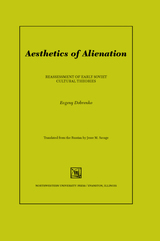
In chapters on Proletkult, RAPP, LEF, and Pereval, Dobrenko reexamines the theories generated by these major Marxist literary groupings of the early Soviet Union. He shows how each approached the problems of literature's response to the presumed social mandate of the young communist society, and how Socialist Realism emerged as a conglomerate of these earlier, revolutionary theories. With extensive and detailed reference to supporting testimony and documents, Dobrenko clearly demonstrates how Socialist Realism was created from within the revolutionary culture, and how this culture and its disciples fully participated in this creative process. His work represents a major breakthrough in our current understanding of the complex sources that contributed to early Soviet culture.
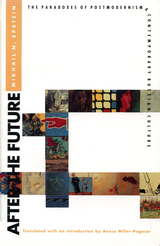
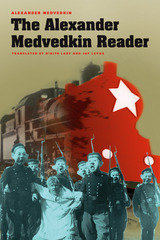
Although he was a dedicated Communist, Medvedkin’s satirical approach and social critiques ultimately led to his suppression by the Soviet regime. State institutions held back or marginalized his work, and for many years, his films were assumed to have been lost or destroyed. These texts, many assembled for this volume by Medvedkin himself, document for the first time his considerable achievements, experiments in film and theater, and attempts to develop satire as a major Soviet film genre. Through scripts, letters, autobiographical writings, and more, we see a Medvedkin supported and admired by figures like Eisenstein, Dovzhenko, and Maxim Gorky.
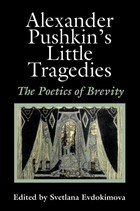
Alexander Pushkin’s four compact plays, later known as The Little Tragedies, were written at the height of the author’s creative powers, and their influence on many Russian and Western writers cannot be overestimated. Yet Western readers are far more familiar with Pushkin’s lyrics, narrative poems, and prose than with his drama. The Little Tragedies have received few translations or scholarly examinations. Setting out to redress this and to reclaim a cornerstone of Pushkin’s work, Evodokimova and her distinguished contributors offer the first thorough critical study of these plays. They examine the historical roots and connective themes of the plays, offer close readings, and track the transformation of the works into other genres.
This volume includes a significant new translation by James Falen of the plays—"The Covetous Knight," "Mozart and Salieri," "The Stone Guest," and "A Feast in Time of Plague."
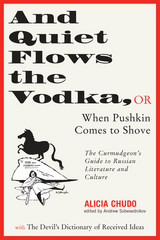
Written in the tradition of 1066 and All That, The Pooh Perplex, and The Classics Redefined, And Quiet Flows the Vodka will, with any luck, be the final word on the ghastly first two millennia of Russian literature, history, and culture.
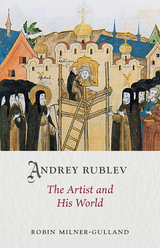
A monk from Moscow, Andrey Rublev (c.1360–c.1430) is heralded as the greatest painter of religious icons and frescos in medieval Russia. Nevertheless, his life remains largely mysterious to historians and devotees alike. In this book, Robin Milner-Gulland provides the first English-language account of the artist’s life as a window into the world of medieval Moscow. Beautifully illustrated with previously unpublished images, Andrey Rublev offers an accessible introduction to the artist’s medieval world and his continuing significance today.
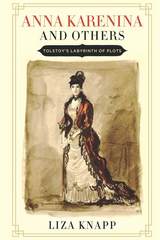
Knapp provides a series of readings of Anna Karenina that draw on other works that were critical to Tolstoy’s understanding of the interconnectedness of human lives. Among the texts she considers are The Scarlet Letter, a novel of adultery with a divided plot; Middlemarch, a multiplot novel with neighborly love as its ideal; and Blaise Pascal’s Pensées, which fascinated Tolstoy during his own religious crisis. She concludes with a tour-de-force reading of Mrs. Dalloway that shows Virginia Woolf constructing this novel in response to Tolstoy’s treatment of Anna Karenina and others.

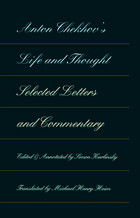
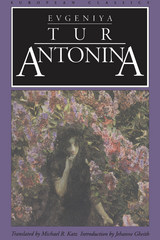
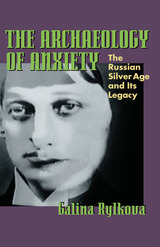
The “Silver Age” (c. 1890-1917) has been one of the most intensely studied topics in Russian literary studies, and for years scholars have been struggling with its precise definition. Firmly established in the Russian cultural psyche, it continues to influence both literature and mass media. The Archaeology of Anxiety is the first extended analysis of why the Silver Age occupies such prominence in Russian collective consciousness.
Galina Rylkova examines the Silver Age as a cultural construct-the byproduct of an anxiety that permeated society in reaction to the social, political, and cultural upheavals brought on by the Bolshevik Revolution, the fall of the Romanovs, the Civil War, and Stalin's Great Terror. Rylkova's astute analysis of writings by Anna Akhmatova, Vladimir Nabokov, Boris Pasternak and Victor Erofeev reveals how the construct of the Silver Age was perpetuated and ingrained.
Rylkova explores not only the Silver Age's importance to Russia's cultural identity but also the sustainability of this phenomenon. In so doing, she positions the Silver Age as an essential element to Russian cultural survival.
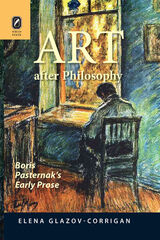
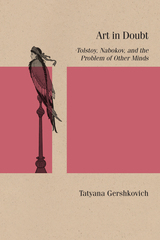
Leo Tolstoy’s and Vladimir Nabokov’s radically opposed aesthetic worldviews emanate from a shared intuition—that approaching a text skeptically is easy, but trusting it is hard
Two figures central to the Russian literary tradition—Tolstoy, the moralist, and Nabokov, the aesthete—seem to have sharply conflicting ideas about the purpose of literature. Tatyana Gershkovich undermines this familiar opposition by identifying a shared fear at the root of their seemingly antithetical aesthetics: that one’s experience of the world might be entirely one’s own, private and impossible to share through art.
Art in Doubt: Tolstoy, Nabokov, and the Problem of Other Minds reconceives the pair’s celebrated fiction and contentious theorizing as coherent, lifelong efforts to reckon with the problem of other people’s minds. Gershkovich demonstrates how the authors’ shared yearning for an impossibly intimate knowledge of others formed and deformed their fiction and brought them through parallel logic to their rival late styles: Tolstoy’s rustic simplicity and Nabokov’s baroque complexity. Unlike those authors for whom the skeptical predicament ends in absurdity or despair, Tolstoy and Nabokov both hold out hope that skepticism can be overcome, not by force of will but with the right kind of text, one designed to withstand our impulse to doubt it. Through close readings of key canonical works—Anna Karenina, The Kreutzer Sonata, Hadji Murat, The Gift, Pale Fire—this book brings the twin titans of Russian fiction to bear on contemporary debates about how we read now, and how we ought to.

In the Soviet Union, as in the West, Marina Tsvetaeva (1892-4941) is acknowledged to be one of the great Russian poets of the century, along with Mandelstam, Pasternak and Akhmatova. Overnight sensation and oft-times pariah, Tsvetaeva was a poet of extraordinary intensity whose work continues to be discovered by new readers. Yet, while she is considered to be one of the major influences on modern Soviet poetry, few know of her consummate gifts as a writer of prose. These select essays, most of which have never been available in translation before, display the dazzlingly original prose style and the powerful, dialogic voice of a poet who would like to make art’s mystery accessible without diminishing it.
The essays provide incomparable insight on poetry, the poetic process, and what it means to be a poet. The volume offers, among many fascinating topics, a celebration of the poetry of Pasternak and reflections on the lives and works of other Russian poets, such as Mandelstam, Mayakovsky, and Zhukovsky. Included in this richly diverse collection are the essays “The Poet on the Critic,” which earned Tsvetaeva the enmity of many, Art in the Light of Conscience, a spirited defense of poetry, and The Poet and Time, seen by many scholars as providing the key to understanding Tsvetaeva’s work. The immense power and originality of Tsvetaeva’s language captured by Angela Livingstone’s superb translation of the essays along with twelve of Tsvetaeva’s poems on related themes, is testimony to why the Tsvetaevan revival in the Soviet Union and interest in the West continue to gain momentum as the centenary of her birth approaches. The volume is made complete by the addition of an elegant introduction by the translator, a chronology of Tsvetaeva’s life, and an index of contemporary poets and writers mentioned in the essays.
“Good poetry is always better than prose,” Tsvetaeva wrote. Prose as good as hers, however, is rare and few have done as much as she to explore the processes of creation and the feelings of the exceptionally creative person in the ordinary world.

This comprehensive study of the Russian literary travelogue, a genre that blossomed in the early nineteenth century, sheds new light on Russian literature and culture of the period.
In the decades before and during the rise of the Russian novel, a new form of prose writing took hold in Russia: travel accounts, often fictional, marked by a fully developed narrator's voice, interpretive impressions, scenic descriptions, and extended narrative. Prompted in part by the growth of leisure travel and in part by publication of Western European examples of travel writing, the genre attracted the talents of numerous writers, including Radishchev, Karamzin, and Pushkin. In illuminating analyses of major texts as well as lesser known but influential works, Andreas Schönle surveys the literary travelogue from its emergence in Russia to the end of the Romantic era. His study offers new insight on the construction of the authorial persona and on the emergence of fiction in a culture that valued nonfiction writing.
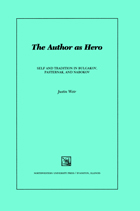
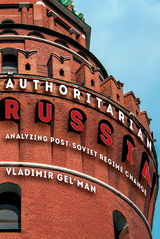
Vladimir Gel’man examines regime change in Russia from the collapse of the Soviet Union in 1991 to the present day, systematically presenting theoretical and comparative perspectives of the factors that affected regime changes and the authoritarian drift of the country. After the fall of the Soviet Union, Russia’s national political elites aimed to achieve their goals by creating and enforcing of favorable “rules of the game” for themselves and maintaining informal winning coalitions of cliques around individual rulers. In the 1990s, these moves were only partially successful given the weakness of the Russian state and troubled post-socialist economy. In the 2000s, however, Vladimir Putin rescued the system thanks to the combination of economic growth and the revival of the state capacity he was able to implement by imposing a series of non-democratic reforms. In the 2010s, changing conditions in the country have presented new risks and challenges for the Putin regime that will play themselves out in the years to come.
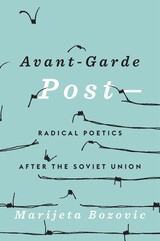
The remarkable story of seven contemporary Russian-language poets whose experimental work anchors a thriving dissident artistic movement opposed to both Putin’s regime and Western liberalism.
What does leftist art look like in the wake of state socialism? In recent years, Russian-language avant-garde poetry has been seeking the answers to this question. Marijeta Bozovic follows a constellation of poets at the center of a contemporary literary movement that is bringing radical art out of the Soviet shadow: Kirill Medvedev, Pavel Arseniev, Aleksandr Skidan, Dmitry Golynko, Roman Osminkin, Keti Chukhrov, and Galina Rymbu. While their formal experiments range widely, all share a commitment to explicitly political poetry. Each one, in turn, has become a hub in a growing new-left network across the former Second World.
Joined together by their work with the Saint Petersburg–based journal [Translit], this circle has staunchly resisted the Putin regime and its mobilization of Soviet nostalgia. At the same time, the poets of Avant-Garde Post– reject Western discourse about the false promises of leftist utopianism and the superiority of the liberal world. In opposing both narratives, they draw on the legacies of historical Russian and Soviet avant-gardes as well as on an international canon of Marxist art and theory. They are also intimately connected with other artists, intellectuals, and activists around the world, collectively restoring leftist political poetry to global prominence.
The avant-garde, Bozovic shows, is not a relic of the Soviet past. It is a recurrent pulse in Russophone—as well as global—literature and art. Charged by that pulse, today’s new left is reimagining class-based critique. Theirs is an ongoing, defiant effort to imagine a socialist future that is at once global and egalitarian.
READERS
Browse our collection.
PUBLISHERS
See BiblioVault's publisher services.
STUDENT SERVICES
Files for college accessibility offices.
UChicago Accessibility Resources
home | accessibility | search | about | contact us
BiblioVault ® 2001 - 2024
The University of Chicago Press



